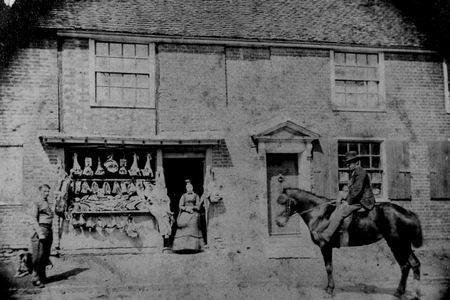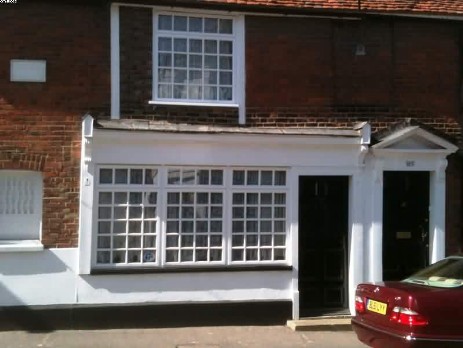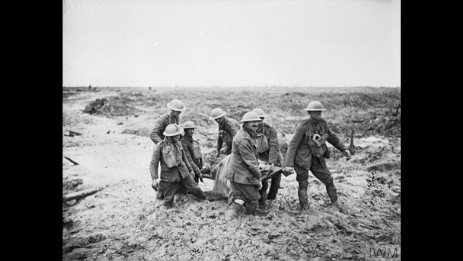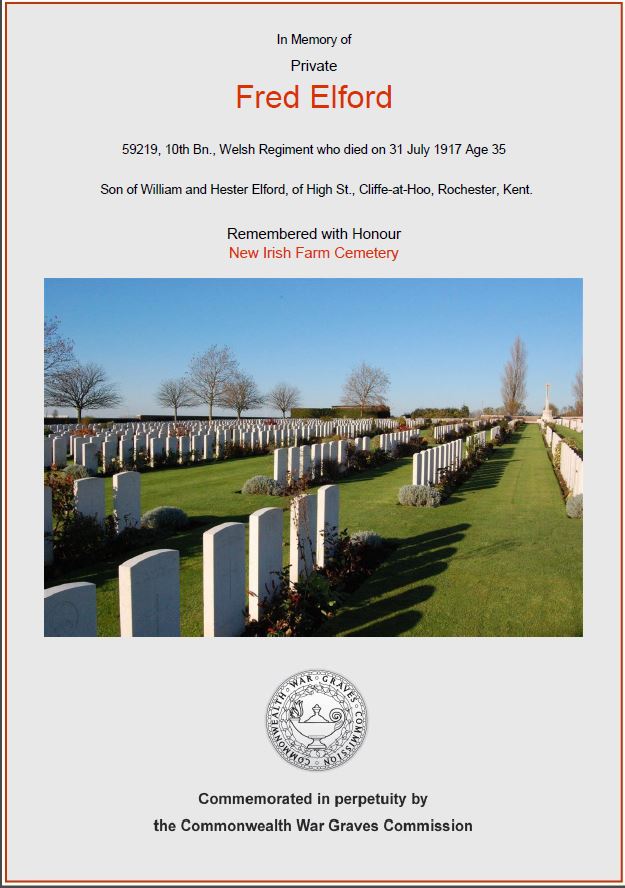Fred Elford
1888 – 1917
Fred Elford was the son of William, who, like his father, was one of the village butchers (deceased 9 April 1907) and Hester Elford. He had two brothers: William (1881), Reginald (1887) and sister Lillian (1889). The boys are all recorded as working at home as butchers in the High Street at Cliffe-at-Hoo. Fred also worked as a fireman.
[Source: 1911 census]


Elford’s the butchers as it looked prior to WWI.
The site of Elford’s as it looks today
Fred volunteered into the army on 12th December 1915 and became part of the 10th Battalion (1st Rhondda) Welsh Regiment.
It wasn’t an easy introduction into action. Having landed at Le Havre at the beginning of 1916 they were involved in the Battle of Albert where the Division suffered severe casualties and took the rest of the year to rebuild.
The battle of Albert, 1-13 July 1916, is the official name for the British efforts during the first two weeks fighting of the first battle of the Somme. As such it includes the first day of the Somme, the most costly day in British military history and one that has coloured our image of the First World War ever since.
The next, and last, major involvement that Fred was involved in was the Battle of Pikem which was also called the third Battle of Ypres and is more commonly known as the Battle of Passchendaele.
Field Marshal Sir Douglas Haig, Commander-in-Chief of the British Forces on the Western Front, confident after British success at Messines Ridge in June and concerned the German blockade would soon cripple the British war effort and fearful of the possibility of Russian withdrawal from the war increasing German forces on the Western Front, ordered the British Infantry to begin an attack at Ypres on 31 July 1917. It is here that Fred was killed in action: apparently he had only been in the trenches for a few days.
Quickly the drainage systems around Ypres were destroyed and the soil turned to mud by a combination of near constant artillery fire and the heaviest rainfall the region had seen for 30 years. The mud quagmire was so deep that it halted tanks, incapacitated weapons and drowned men and horses.

British stretcher bearers carrying wounded in deep mud.

